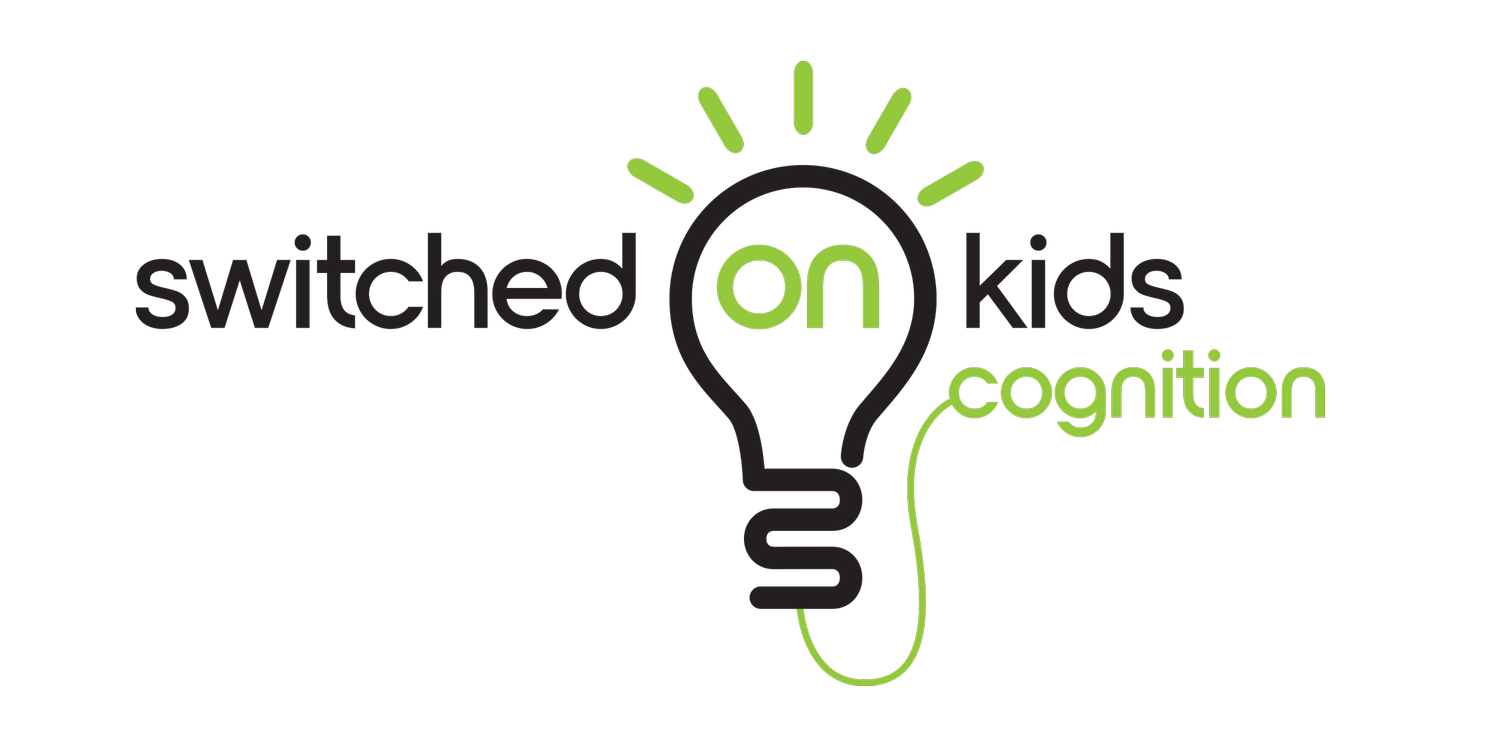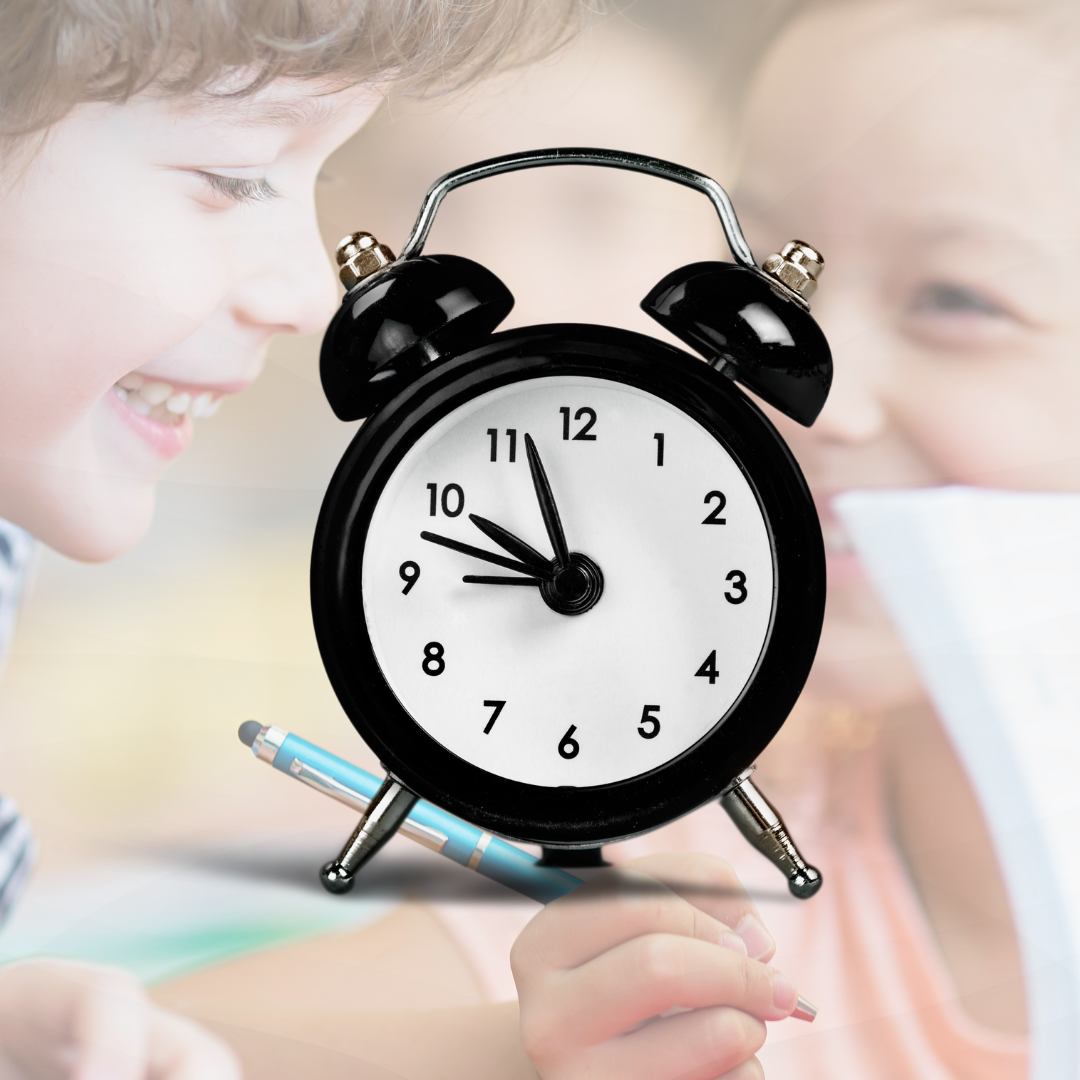Time Blindness & ADHD
Did you know that kids with ADHD sense time differently and struggle with what has been termed “time blindness”? More recently researchers have come to think of difficulties in the perception of time as a key deficit in ADHD. Some have even suggested that symptoms associated with time perception be included in the next revision of the Diagnostic and Statistical Manual of Mental Disorders (DSM) (Weissenberger et al., 2021). The term “time blindness” was coined by Russell Barkley who notes that “If you are not aware of time you cannot manage it”.
Problems with the perception of time are not something that usually comes to mind when we think about ADHD. However, if you parent a neurodivergent child and start thinking about “time” suddenly many things make sense. How many times have you said to your child “We will be leaving in 5 minutes” to find that instead of going and putting their shoes on you find them reading a book? How often do you say to your child “Dinner is almost ready” to find that they have headed off to jump on the trampoline? This is fascinating stuff to pull apart. We are not going crazy when we wonder why our kids are so often late and disorganized. We know what we mean when we say “5 minutes until we get into the car”, but does your 7-year-old who has just started drawing a picture of a castle?
Where does getting ready for school fit into your child’s “time horizon”? How do they judge the time it will take them? Young children may only look an hour or so into the future and kids with ADHD are often entirely focused on the now. Add in hyperfocus and time has simply vanished in their mind. A child who is in hyperfocus mode is truly unaware of time (time past and time in the future). What this means is that when these kids need to transition (for example, leaving the house to go out) we have a problem (often a meltdown). Many neurodivergent kids struggle with transitions. Understanding the differences in the ways they perceive time can help us understand and hopefully make these transitions easier.
Frustrations around timing and getting ready for school are a big issue in many homes with children (not only neurodivergent children). Our sense of time develops over many, many years. As we get older, we get better (well most of us) at judging time and being able to place events on a time horizon that extends both into the past and present and on into the future. Adults can reflect on what they did yesterday, manage what they are doing today and plan for events that may occur many months or years into the future.
For most kids, their sense of time does become more accurate and precise as they get older. However, kids with ADHD do not grow out of their difficulties judging and sensing time. Adolescents with ADHD have been shown to have “severe impairments” related to the sense of time (Toplak & Tannock, 2005).
Being aware of time and having a sense of time is an executive function (we can think of executive functions as being the high-level CEOs of the brain). Time estimation is associated with activity in the prefrontal cortex and dopamine (Coull et al., 2011). The prefrontal cortex and dopamine have been repeatedly implicated in the etiology of ADHD.
Two recent reviews (Ptacek et al., 2019; Weissenberger et al., 2021) have found that individuals with ADHD struggle with:
· Using hindsight to estimate how long a task took.
· Estimating how long a future task will take.
· Planning to complete future tasks.
· Estimating the passage of time.
Many individuals with ADHD have the experience that time passes more quickly than it does. People with ADHD are often late and struggle with deadlines. Time feels less defined. Notice how your child responds to time cues. Do they notice when others in the house are getting ready to leave the house? My dog does! My kids, I am less sure. Is your child sometimes surprised when you tell them you are about to leave? How do you think they judge and manage time?
Time processing is often assessed using time estimation, or asking a child to state how much approximate time has passed without using a timer or watch. Kids with ADHD consistently overestimate or minimize the amount of time that has passed (Walg et al., 2015). Pure time perception deficits are considered a central feature of ADHD (Smith et al., 2002). However, a recent study by De la Charie et al. (2021) found that the delayed acquisition of time in ADHD was associated with poor working memory.
Neurodivergent kids may find that time passes them by without them realising. This means that they are often unable to complete tasks on time or to the best of their ability. Studies have shown that timed tasks and time pressure often result in cognitive overload (Weigard & Huang-Pollock 2017). This has a huge impact in the school environment where many tasks require completion within a specific time.
Time is more than just a clock on the wall. Our sense of time is linked to an internal brain clock or circadian system that is influenced by light. It is very well known that ADHD is associated with a disrupted circadian system and poor sleep (this was recently confirmed in a meta-analysis of 42,353 children) (Bondopadhyay et al., 2022). Kids with sleep issues do not tend to grow out of them. Issues with sleep and disruptions in circadian rhythms continue into adulthood. (Snitselaar et al., 2017). There is some evidence that exposure to the outdoors and natural light can have positive effects on circadian rhythms Screen time does not help (but that is probably a topic for another day).
Interestingly, some evidence suggests that medications can have a normalizing effect on both the core symptoms of ADHD and the perception of time (Barkley et al., 2001). It is also important to address issues such as working memory, cognitive inflexibility and slow processing speed that will make time management even harder than it already is.
The good news is that there are many practical ways we can help kids and teens understand and manage time. For example:
Avoid the use of timed tests.
Utilise technology where appropriate (for example visual timers).
Teach children to judge time using a large analog clock (digital time can be more abstract).
Schedule rewarding breaks for dull tasks (get kids moving).
Break up time and activities into meaningful chunks.
Schedule breaks during tasks where hyperfocus is likely.
Model time management, for example, “we need to be at the birthday party at 3pm, so what time do you think we should leave”?
Assume things may take twice as long (helpful in my house, I can brush my teeth and put my shoes on in 5 minutes but it takes my kids 10-15 minutes).
Discuss time with your child. Ask them questions such as, how long does it take to: Walk to school? Eat your lunch? Brush your teeth? Drive to a relative’s house?
I would love to hear more about how these issues affect your family, so please email me if you have any questions or any observations to add.
To learn more about time blindness and work on executive function skills, please see HERE.
References
Barkley, R.A.. et al (2001). Executive functioning, temporal discounting, and sense of time in adolescents with attention deficit hyperactivity disorder (ADHD) and oppositional defiant disorder (ODD). Journal of Abnormal Child Psychology, 29(6): 541–56.
Bondopadhyay , U. et al. (2022). A Systematic Review of Sleep and Circadian Rhythms in Children with Attention Deficit Hyperactivity Disorder. Journal of Attention Disorders, 26(2): 149-224.
Coull, J.T. et al. (2011). Neuroanatomical and neurochemical substrates of timing. Neuropsychopharmacology, 36(1): 3-25.
De la Charie, A. et al. (2021). Time knowledge impairments in children with ADHD. Archives de Pédiatrie, 28(2): 129-135.
Ptacek, R. et al., (2019). Clinical Implications of the Perception of Time in Attention Deficit Hyperactivity Disorder (ADHD): A Review. Medical Science Monitor, 25: 3918-3924.
Toplak, M.E. & Tannock, R. (2005). Time perception: modality and duration effects in attention-deficit/hyperactivity disorder (ADHD). Journal of Abnormal Child Psychology, 33(5): 639–54.
Smith, A. et al. (2002). Evidence for a pure time perception deficit in children with ADHD. Journal of Child Psychology and Psychiatry, 43(4):529-42.
Snitselaar, M. A. et al. (2017). Sleep and Circadian Rhythmicity in Adult ADHD and the Effect of Stimulants. Journal of Attention Disorders, 21(1): 14-26.
Walg, M. et al. (2015). Adjustment of time perception in the range of seconds and milliseconds: The nature of time-processing alterations in children with ADHD. Journal of Attention Disorders, 19(9): 755-63.
Weigard, A., & Huang-Pollock, C. (2017). The role of speed in ADHD-related working memory deficits: A time-based resource-sharing and diffusion model account. Clinical Psychological Science, 5(2): 195-2011.
Weissenberger, S. et al. (2021). Time Perception is a Focal Symptom of Attention-Deficit/Hyperactivity Disorder in Adults. Medical Science Monitor, 27: e933766.


